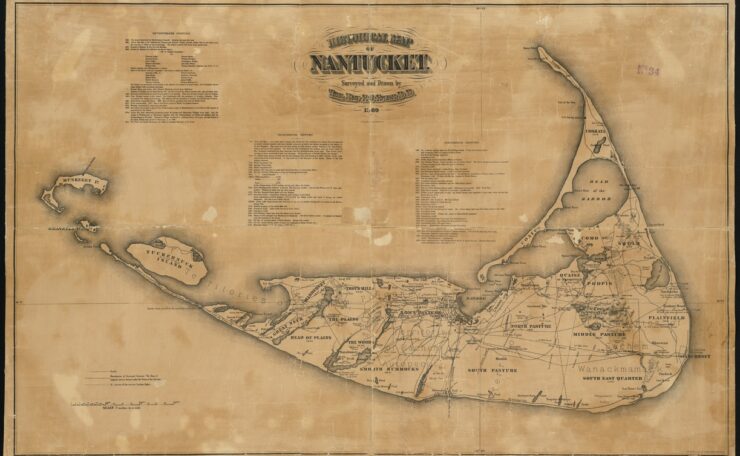Long before harpoons were launched and whale oil lit the lamps of the world, Nantucket Island had its own quiet rhythm—rich in natural beauty, Indigenous culture, and early colonial life. Though the whaling industry would come to define Nantucket’s legacy, the story of this small island begins centuries earlier, shaped by wind, sea, and community.
The Original Islanders: The Wampanoag People
For thousands of years, the Wampanoag people lived on Nantucket—known to them as Natocke or Canopache, meaning “faraway land” or “place of peace.” Archaeological evidence suggests the island was inhabited as early as 4,000 years ago.
These early residents thrived off the land and sea. They fished the bountiful waters, harvested shellfish, hunted birds, and cultivated crops like corn, beans, and squash. Their deep spiritual connection to nature informed their daily lives and traditions. Seasonal migration was common, and the Wampanoag moved between summer and winter settlements to follow food sources and shelter.
By the time English settlers arrived, there were an estimated 3,000 Wampanoag living on the island—organized into clans, each with its own leader or sachem.
European “Discovery” and Settlement
In 1602, English explorer Bartholomew Gosnold sailed by Nantucket, recording it as a remote, wooded land surrounded by shoals. But it wasn’t until 1659 that European colonists, mainly from Massachusetts, purchased the island from the Wampanoag.
Nine investors—known as the “Proprietors”—acquired rights to the island. Many came from Puritan backgrounds and sought to establish a peaceful, religiously oriented agrarian community. Among them were the Coffin, Macy, and Folger families, whose names still echo throughout Nantucket history.
An Isolated and Self-Reliant Colony
In the early years, Nantucket’s isolation was both a blessing and a challenge. There was no harbor deep enough for major trade, and strong currents made sailing treacherous. As a result, the settlers lived simply and relied heavily on farming, sheep herding, and fishing.
Land was divided into narrow strips, and small homesteads dotted the interior. The sandy soil was poor for large-scale agriculture, so most people raised sheep for wool and used every part of the animals for sustenance and trade.
Life was hard. Winters were cold and supplies were scarce. The settlers developed a strong sense of community and interdependence, with families working together to survive the island’s isolation.
Harmony and Tensions with the Wampanoag
Initially, relations between the settlers and the Wampanoag were relatively peaceful. The Native population assisted the settlers with farming techniques and helped them adapt to the environment. In return, settlers introduced new tools and goods.
Over time, however, the pressures of disease, land loss, and cultural displacement began to erode the Wampanoag way of life. By the late 1600s, many had died from smallpox and other illnesses, and others had been gradually pushed to the island’s edges.
Despite these tragedies, some Wampanoag families remained integrated into Nantucket life well into the 18th century. Several even worked as early crew members in the island’s first whaling ventures.
Seeds of a Maritime Future
Even before whaling took center stage, Nantucketers were already turning toward the sea. With limited farmland and growing families, they fished offshore, traded with the mainland, and began experimenting with capturing smaller marine mammals, such as pilot whales and dolphins.
The settlers observed the Wampanoag’s traditional hunting methods and began to adapt them for offshore ventures. This knowledge would later blossom into the global whaling enterprise that put Nantucket on the map.
Conclusion: A Foundation Beneath the Fame
Before the boom of the whaling industry transformed Nantucket into a global powerhouse, the island was a quiet, rugged outpost shaped by the land and sustained by cooperation, tradition, and resilience. The story of pre-whaling Nantucket is one of adaptation, community, and the blending—sometimes peacefully, sometimes painfully—of two worlds.
This chapter of history laid the groundwork for the golden age of whaling, but it also deserves its own spotlight, reminding us that even before the fortunes were made, Nantucket had a soul worth discovering.
Book Your Nantucket Island Tour Now! Click Here




